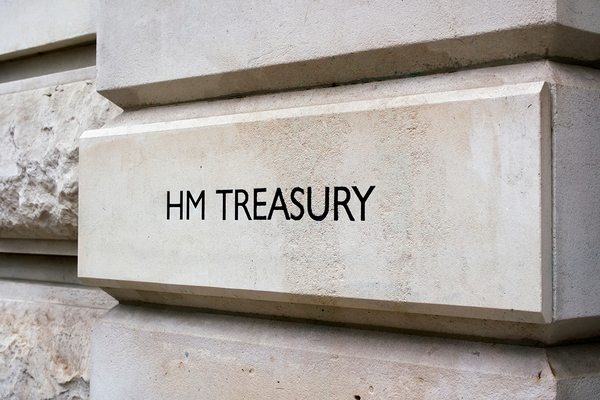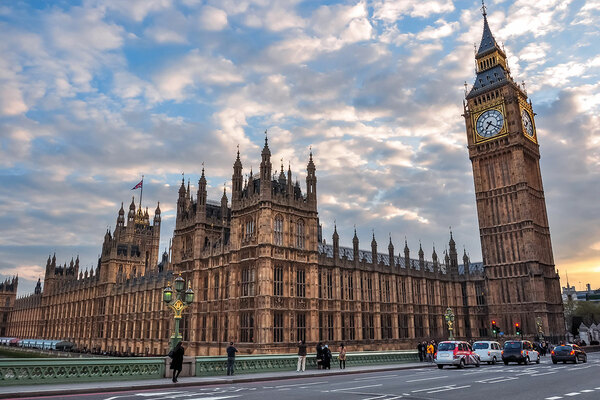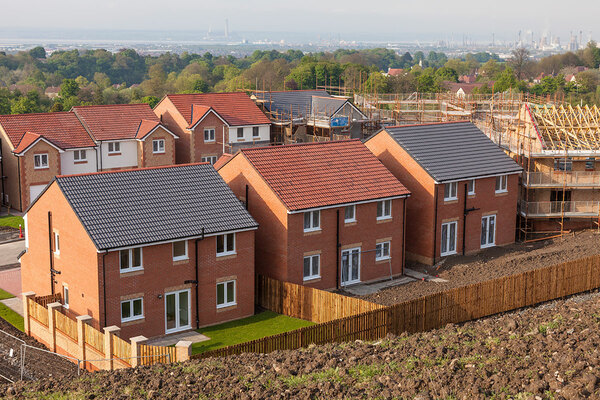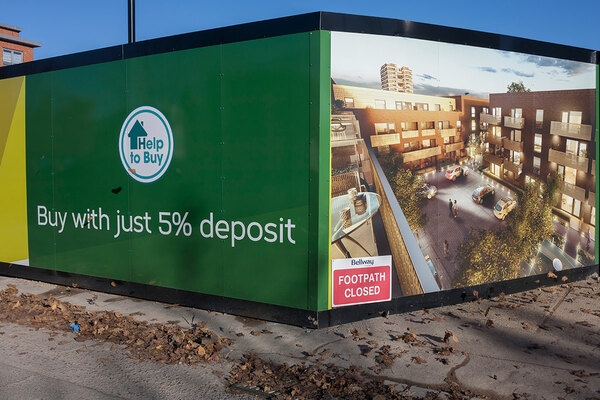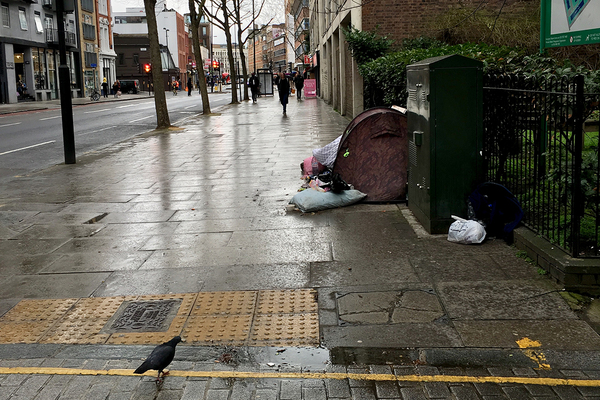You are viewing 1 of your 1 free articles
What should the housing sector look out for in today’s Budget?
Today’s Budget will be the first serious indication of how Boris Johnson’s majority government will approach the housing crisis. Pete Apps runs through the issues the sector should be looking out for.
Rishi Sunak has been chancellor for less than a month and whatever carefully laid plans he had drawn out will surely have been disrupted by the outbreak of coronavirus.
Nonetheless, his first Budget, which will be delivered at 12.30 today, holds great significance for the affordable housing sector.
Below are the key points to keep an eye out for:
Building safety
Pressure has been mounting on the chancellor to act decisively to start to address the growing crisis of buildings up and down the country that have dangerous cladding and other fire safety issues.
As well as an open letter from residents affected by the crisis, the chancellor has received pleas to act from Greater Manchester’s mayor Andy Burnham, the National Housing Federation, and the Association of Residential Managing Agents.
The crisis will be familiar to all readers of Inside Housing: leaseholders in blocks of flats cannot sell their homes, enormous costs are being passed down and the social housing sector is creaking under the weight of the vast bills of making blocks safe.
So far, £600m of funding has been announced. But this is strictly ringfenced for tall buildings with aluminium composite material (ACM) cladding and the crisis is now much wider, taking in buildings from 11m in height and a wide variety of cladding types and other safety issues.
There are many ideas about how to start solving this national problem but all require at least some public money to be committed. The chancellor is unlikely to announce a bottomless fund to cover every penny of cost, but if the crisis is totally ignored, expect outrage from the many residents’ groups waiting desperately for action.
Affordable homes programme
Picture: Getty
The current funding programme for new affordable housing expires in 2021 and the government is running out of time to ensure a smooth transition to whatever it has planned after that point.
The Conservative manifesto promised the programme would be renewed, but gave no details about its size or the tenures of housing it will support.
However, national newspapers have been briefed to expect “record investment” in infrastructure, with many – including the BBC – noting that this will include affordable housing. If Mr Sunak has been given the freedom to make affordable housing budgets part of national infrastructure budgets, which could total £600bn, this may prove to be a truly watershed moment.
The question remains, though, what sort of housing will the government fund?
Boris Johnson’s government has so far indicated it is much more interested in homeownership schemes than social rent. In 2015, George Osborne announced a new programme that shifted all funding to shared ownership and discounted homes for first-time buyers – such a move is not out of the question again.
However, Mr Johnson is a different politician with a different core vote to satisfy. There is some hope the desire to please the party’s new working class voters in former Labour seats may lead to more money for genuinely affordable housing.
Pressure on this point has come from surprising places. In the build up to the Budget, 27 Conservative MPs led by ex-cabinet minister David Davis wrote to Mr Sunak demanding funding for a “council house building boom”.
This was supported by a thundering leader in The Sun, which said: “The number of new council homes is below those being sold or demolished. That is scandalous.” Say what you like about the paper, but it retains a significant influence on government policy and rarely backs campaigns it doesn’t think have a chance of success.
Homeownership
Picture: Getty
When it comes to housing, what Boris Johnson really wants to do is to pose in a hard hat on a building site as some plucky British builders build a British home out of British bricks for a young British family to buy.
We already have the First Homes agenda announced and it is not out of the question to expect some more details in the Budget, such as the number of homes the government expects to deliver.
The government has also not given up on its ‘shared ownership right to buy’ scheme and the Budget may prove a set piece moment to announce some pilots or ‘voluntary’ partnerships with organisations interested in taking it forward.
The Conservative manifesto also promised long-term fixed rate mortgages, which may make an appearance.
Rough sleeping
Picture: Getty
The Conservative manifesto made the bold pledge of ending rough sleeping by 2025 – an incredibly ambitious objective that requires immediate work if it is to be achieved.
In reality, ending rough sleeping would require sweeping policy changes that extend well beyond housing – including, but not limited to, more compassionate immigration policies, a more progressive drugs policy, and vast improvements to mental health and adult learning disability services.
On the housing front, though, far more hostel beds and a sharp increase in the number of homes available for Housing First schemes would be a start. The government promised in its manifesto to expand Housing First schemes, so this is worth looking out for.
The green agenda
Will the government push money into retrofitting homes to make them more carbon efficient? The costs of achieving carbon zero in social housing alone are astronomical and scaling them up across the entirety of the UK’s crumbling housing stock is simply a vast sum of money.
Nonetheless, the Conservative manifesto did promise significant investment. It said £9.2bn would be plunged into improving the energy efficiency of homes, schools and hospitals.
It has been widely reported, however, that the National Infrastructure Plan, which will set out £100bn of infrastructure spending to boost the economy and tackle climate change, will be delayed until after the Budget.
Levelling up
Picture: Getty
If “get Brexit done” was the smash hit of the general election, the tune stuck on repeat now is “levelling up”. The government wants to talk about how it’s going to improve the lot of northern towns and cities, which in the current popular economic analysis have been “left behind” at the expense of investment in London.
There are hopes in some quarters that housing could benefit from this policy direction: plainly, regeneration of deprived areas in many towns (not just those in the North) requires funding, to build new homes and improve existing ones. It is equally plain that the focus in recent years has been on new supply, not regeneration, and more money has gone into London and the South East than the North. It is worth watching any housing announcements at this Budget to see if they address this North-South divide.
However, optimism about major investment in housing renewal in towns is muted. Much of the discussion of “levelling up” has involved transport infrastructure, with housing yet to really cut into this debate.
It is also worth pointing out that London contains 66% of all the households in temporary accommodation in the country. Cutting housing budgets in the capital to spend in the North would be a blow to these families, not Dominic Cummings’ fabled ‘rich remainers’.
More on the Budget 2020
Inside Housing is bringing you up-to-date news, analysis and comment from the first post-Brexit Budget.
Here are the details of all our coverage so far:
Shared ownership Right to Buy likely to be applied to all rented homes funded under £12bn programme The government is looking at allowing tenants renting homes built through the new Affordable Homes Programme the right to shared ownership of their homes
Fire safety costs ‘could still hit development pipelines’ despite £1bn fund Concerns remain in sector despite cladding removal fund
Budget 2020: an improvement on recent years but questions remain Jules Birch gives his verdict on the first post-Brexit Budget
Housing figures react to ‘positive’ Budget announcements for sector Reaction from key sector figures to the measures unveiled
The housing bits of Sunak’s speech in full Read the key passages from the chancellor’s speech to the House of Commons
PWLB rates for social housing cut to pre-hike levels The cost for councils of borrowing to fund social housing will fall
Budget 2020: the key housing measures at a glance An at-a-glance guide to the key Budget announcements for the sector
Chancellor announces additional £12bn for Affordable Homes Programme Rishi Sunak announces the largest affordable grant programme in years
£650m fund to tackle rough sleeping The chancellor promises to fund 6,000 new places for rough sleepers to live
£1bn Building Safety Fund to remove ‘all forms’ of cladding The government pledges money to make all buildings safer
Housing secretary to announce planning reforms Ministers will set plans to reform the planning system on Thursday
Pre-Budget:
What should the housing sector look out for in today’s Budget? Peter Apps runs through the issues the sector should be looking out for
The housing sector is right to feel anxious about tomorrow’s Budget The government has indicated that its main focus with regard to housing policy is homeownership. The sector should be nervous about what this means for its spending priorities, writes John Perry
What the sector wants from the chancellor James Wilmore sifts through the submissions from the sector’s biggest players to find out what they want from the Budget later today
Conservative MPs urge chancellor to use Budget to build more social housing A group of 27 Conservative MPs and the mayor of the West Midlands have written to chancellor Rishi Sunak ahead of the Budget statement to urge him to allocate more money to building social housing.
How this Budget will signal the government’s direction of travel on housing With the first post-Brexit Budget due, Kate Henderson assesses the issues on which the sector has been lobbying
